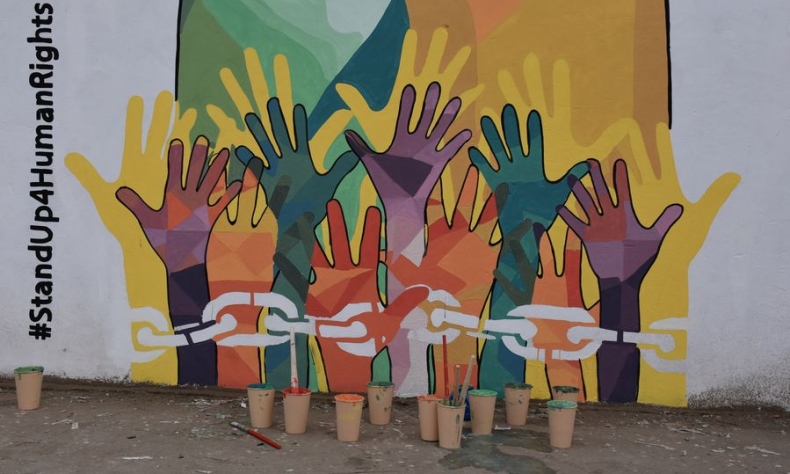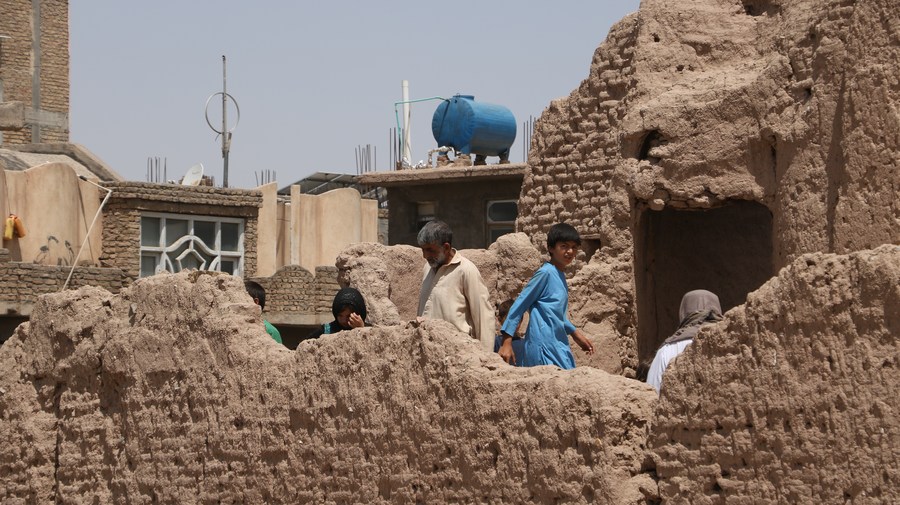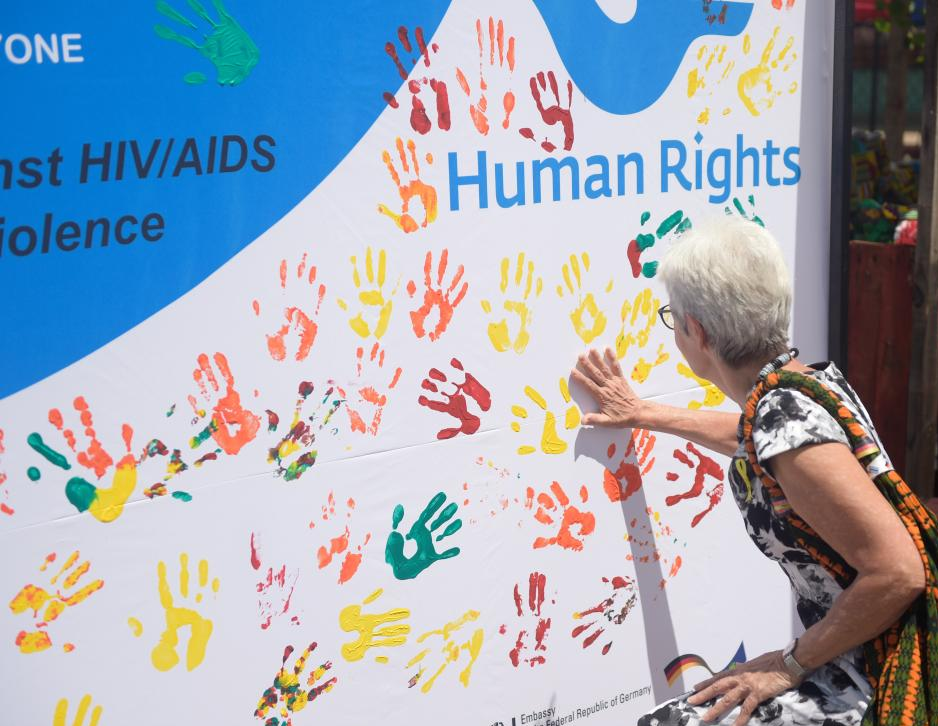Why the Vienna Declaration Remains Relevant

Only through greater and consistent international cooperation and solidarity can notable progress of global human rights become possible.
This year is the 30th anniversary of the Vienna Declaration and Programme of Action (Vienna Declaration) adopted by the World Conference on Human Rights held by the United Nations in Vienna, Austria.
At present, humans are at a historical crossroads. Global human rights governance is facing severe challenges and governance deficits are becoming prominent. Regional conflicts, arms races, terrorism, cybersecurity threats, climate change, food insecurity, energy crises and global poverty are posing increasing challenges to protecting human rights. The North-South gap between developed and developing countries, inequality among countries and uneven development have not been addressed, and hegemonism and unilateralism are greatly impacting global human rights governance.
The Vienna Declaration, adopted in the aftermath of the Cold War, draws the experience and lessons from global human rights governance since the founding of the UN in 1945. It states that all human rights are interdependent and indivisible, and the right to development is an integral part of fundamental human rights. The document also underscores cooperation and development for strengthening human rights.
The Vienna Declaration, with its effective exploration of the path to promoting and protecting human rights, is significant for overcoming today’s chaos in global human rights governance.
Indivisible rights
In a broad sense, human rights comprise of civil and political rights, economic, social and cultural rights, as well as collective rights such as the right to development and self-determination. All people, regardless of their race, skin color, gender, language, religion and origin, should enjoy all human rights equally. Special measures are needed to ensure the rights of vulnerable groups such as minorities, the poor, refugees, women, children, people with disabilities and the elderly.
The Universal Declaration of Human Rights, adopted 75 years ago, defines a wide range of civil, political, economic, social and cultural rights and sets common standards for all peoples and nations. The core UN human rights treaties that were developed based on the declaration have set international standards for human rights protection.
The United States is a confusing player critical of other countries but turning a blind eye to its own poor record. It refuses to embrace universally recognized human rights standards. It does not recognize economic, social and cultural rights as fundamental human rights and has not ratified international conventions guaranteeing the rights of children, women and people with disabilities. Moreover, it attached conditions to its ratification of three core UN human rights treaties in the form of reservations, understandings and declarations to ensure its own laws will prevail over the treaties.

The Vienna Declaration states that “all human rights are universal, indivisible and interdependent and interrelated. The international community must treat human rights globally in a fair and equal manner, on the same footing, and with the same emphasis.” Some countries like the U.S. overemphasize the right to individual freedom, downplaying the role of government in balancing individual rights and the collective good, and ignoring and even denying economic, social and cultural rights. These practices are not in accordance with international human rights law.
The Vienna Declaration underscores that “the promotion and protection of all human rights and fundamental freedoms must be considered as a priority objective of the United Nations in accordance with its purposes and principles, in particular the purpose of international cooperation.”
Global human rights governance should adhere to the fundamental principles of democracy and equality as well as be executed through dialogue and cooperation. In 2006, the UN established the Human Rights Council as a subsidiary body to the UN General Assembly to replace the Commission on Human Rights, a subsidiary of the Economic and Social Council. The move, together with the installation of the Universal Periodic Review system, aims to stop UN human rights forum from being a “political arena” controlled by the U.S. and other Western countries, and uphold the UN’s original aspiration of “promoting international cooperation” on human rights issues.
However, the new mechanism has once again been manipulated by the U.S. and other Western countries in recent years, where they spread false information, incite group confrontation and impose political repression. Western countries often name and shame other countries on international occasions, and even fabricate charges for political goals. They have instrumentalized, politicized and ideologized human rights issues, obstructing effective discussions on real global human rights issues and undermining global human rights governance.
The spirit of the Vienna Declaration remains relevant today. Only through greater and consistent international cooperation and solidarity can notable progress of global human rights become possible.

Unilateralism vs. cooperation
Unilateralism is a prominent threat to global human rights governance, and the U.S. should be held accountable for its rising rampancy.
Since the 1970s, the U.S. has linked accepting its human rights principles to gaining its assistance through amending the Foreign Aid Act. Playing its self-assigned role as the “world’s cop for human rights,” the U.S. has issued country-specific human rights reports every year, making threats using human rights issues and imposing unilateral sanctions on individuals, enterprises, entities and even entire industries in other countries to gain ammunition for its political agendas. For example, the U.S. has enacted a number of laws concerning China’s Xizang (Tibet is romanized as Xizang in the Chinese phonetic system) and Xinjiang autonomous regions as well as Hong Kong Special Administrative Region in recent years. The new laws, based on false premises, serve as the legal basis for the U.S. to sanction China under the guise of human rights issues and assemble its allies to exclude Chinese companies and products from global industrial and supply chains.
The U.S. and its allies have arbitrarily imposed unilateral sanctions under the pretext of human rights, which have violated international law, severely hindered the development of other countries, infringed upon the human rights of people in other countries and disrupted the order of international trade. The U.S. practice of reinventing a set of rules beyond the UN-led global human rights governance system undermines global governance and multilateralism.
The Vienna World Conference on Human Rights clarified that the promotion and protection of human rights should be pursued in line with the purposes and principles of the UN Charter and international law. The conference called upon states to refrain from any unilateral measure not in accordance with international law and the UN Charter that creates obstacles to trade relations among states and impedes the full realization of the human rights set forth in the Universal Declaration of Human Rights and other international human rights instruments, in particular the rights of everyone to a standard of living adequate for their health and wellbeing, including food and medical care, housing and the necessary social services.
Alena Douhan, UN Special Rapporteur on the negative impact of unilateral coercive measures on the enjoyment of human rights, pointed out that over-compliance with unilateral sanctions leads to harmful effects on human rights. She particularly criticized efforts by some countries, especially the U.S., to enforce sanctions globally through fines and secondary sanctions against those doing business with sanctioned parties. Douhan said imposing secondary sanctions or threatening secondary sanctions and civil and criminal penalties for non-compliance with their sanctions on regimes was illegal.

The Vienna Declaration recognizes that widespread extreme poverty has affected full and effective enjoyment of human rights. The immediate alleviation and eventual eradication of poverty must remain a priority for the international community. The UN 2030 Agenda for Sustainable Development has established “ending poverty in all its forms everywhere” as the primary goal of sustainable development. China has taken the lead in implementing the agenda. By the end of 2020, all the remaining 98.99 million rural people living below the current poverty line in China had shaken off poverty. The country contributed more than 70 percent to global poverty reduction in the more than 40 years since it embraced reform and opening up in late 1978.
The Vienna World Conference on Human Rights reaffirmed that the right to development is a universal and indivisible right and part of fundamental human rights. The Vienna Declaration underscores that states should cooperate with each other in ensuring development and eliminating obstacles to development. It highlights the idea that people are the core of development.
Development is the basis for enjoying human rights. Peace is impossible without development, let alone prosperity. In 2021, China proposed the Global Development Initiative (GDI), calling on all countries to fully leverage development to improve the enjoyment of all human rights, adhere to people-centered development and ensure that development is for the people and by the people. The GDI also advocates promoting inclusive development, addressing uneven and inadequate development among and within countries, upholding multilateralism and supporting the UN in playing an overall coordinating role in the implementation of the 2030 Agenda. These proposals and initiatives are in line with the principles of the Vienna World Conference on Human Rights.
The author is a researcher with the Institute of International Law, Chinese Academy of Social Sciences.
 Facebook
Facebook
 Twitter
Twitter
 Linkedin
Linkedin
 Google +
Google +










